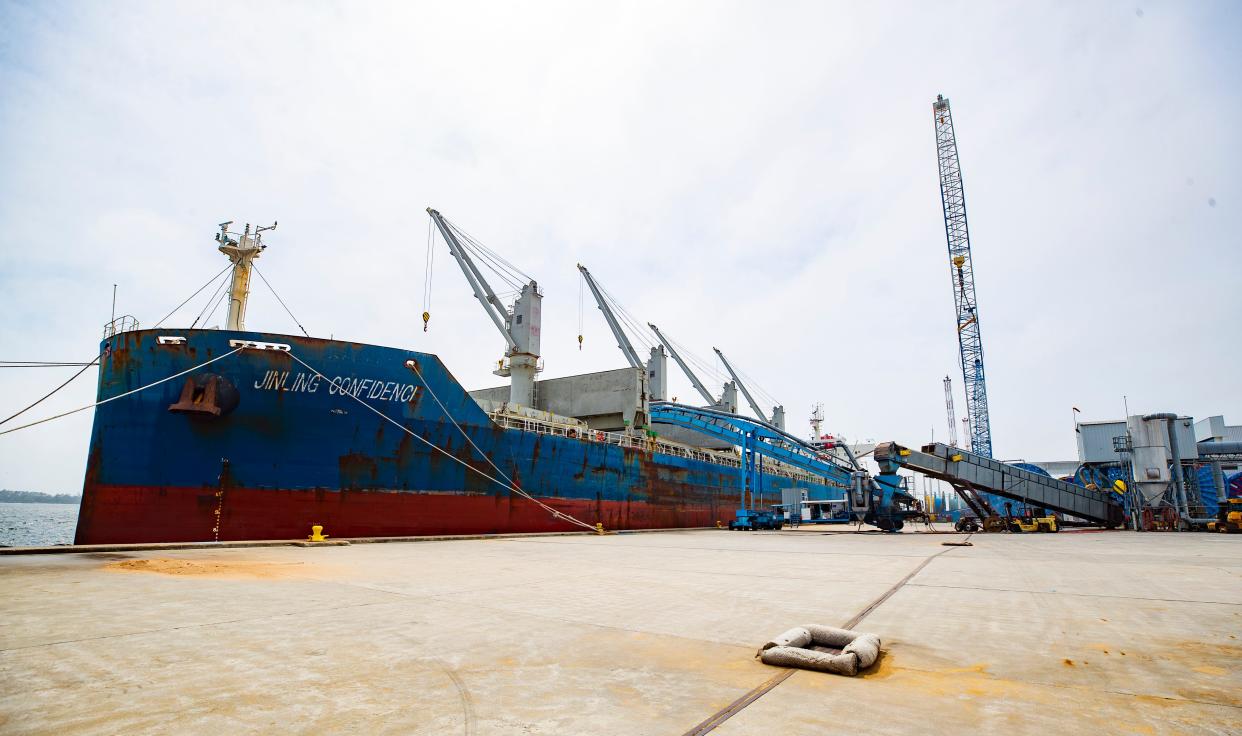Activists say proposed rules in Gulf to protect Rice's Whales are 'absolutely critical'

PANAMA CITY − Christian Wagley says the National Oceanic and Atmospheric Administration has a responsibility to protect Rice's whales and help the species recover from its critically endangered status.
As coastal organizer for Healthy Gulf, a nonprofit organization that works to restore and protect the Gulf of Mexico, Wagley is among those who want NOAA to approve a list of proposed rules to help protect the marine species. The rules include a 10-knot speed limit and nighttime travel ban for Gulf water between 100 meters and 400 meters deep from Pensacola to Tampa Bay.
The proposed rules stem from a petition submitted by the Healthy Gulf, Natural Resources Defense Council, Center for Biological Diversity, Defenders of Wildlife, Earthjustice and the New England Aquarium.
"NOAA is required by law to not only protect this species, but recover it," Wagley said. "There's no debating whether we're going to protect the whale or not. We are. It's the law. It's part of the values that Americans put in our laws when the Endangered Species Act was passed in 1973."
He noted the groups submitted the petition in 2021, and it was not until recently that NOAA opened a comment period on the suggestion. The period, which ended last week, allowed members of the public to give feedback that NOAA will now use in deciding whether it will implement the new rules.
Officials with Port Panama City and the Florida Ports Council have said they fear the rules would cripple ports near the restricted zone for a couple of reasons. It is sometimes necessary to travel faster than 10 knots to safely navigate rough open-water conditions, and about half of the more than 2 million tons of cargo handled by Port Panama City in 2022 was processed overnight.
Wagley said the groups did not know exactly how much cargo Port Panama City processed overnight when they submitted the petition. He also was not aware of any documented safety issues created by a similar 10-knot seasonal speed limit on the eastern coast of the U.S. for the North Atlantic right whale.
"We would never ask for a rule or a proposal that would ever put people or vessels at risk," he said. "We would not want to put vessels at risk, and there is no evidence that any vessels were put at risk by the speed limits that are already in place and have been for years for right whales."
Wagley said he is confident that if NOAA approved the rules, they would contain provisions allowing vessels to go faster than 10 knots in an emergency. He also said more work might need to be done to craft a better strategy for nighttime travel because a significant amount of cargo is processed during that time. That said, he thinks speed limits for vessels in the Gulf are "absolutely critical."
"We already have this in our communities," Wagley said of speed limits. "Everybody's familiar with these slow zones around schools. We know that when we slow down the vehicles around schools, we save children's lives. We can do the same thing with the whales by slowing down and giving them space.
"It's been documented that it has worked on the East Coast."
Proposed rules: Council says proposed rule on Rice's whales could cripple ports, including Panama City
Healthy Gulf has worked to protect Rice's whales for more than a decade, even before it was known to be a distinct species. The animals were thought to be a subspecies of Bryde's whale until 2021.
Rice's whales have an estimated population of about 50, and unlike other whale species, they do not migrate out of the Gulf. Wagley said this is why the proposed rules are year-round and not seasonal like those on the East Coast.
He also noted the nighttime travel ban was suggested because Rice's whales typically rest toward the water's surface, making them "extremely vulnerable at night."
Along with a 10-knot limit and nighttime travel ban, the petition proposes that vessels passing through the zone report their plans to NOAA, have trained Rice's whale observers and stay at at least 500 meters away from any Rice's whales. They also are to use and operate an automatic identification system or notify NOAA of transits through the zone, and report all non-compliance to NOAA within 24 hours.
"Even the loss of one is catastrophic when you only have 50 or 51 remaining," he said. "You can't have additional deaths from human activities any more than one every 15 years to maintain the population we have, so it's very critical that they be protected.
"We need to continue to work with our partners in the ports and the shipping industry to find ways to reduce those nighttime transits, while minimizing the obstruction to their operations."
This article originally appeared on The News Herald: Healthy Gulf supports petition for new rules to protect Rice's whale

